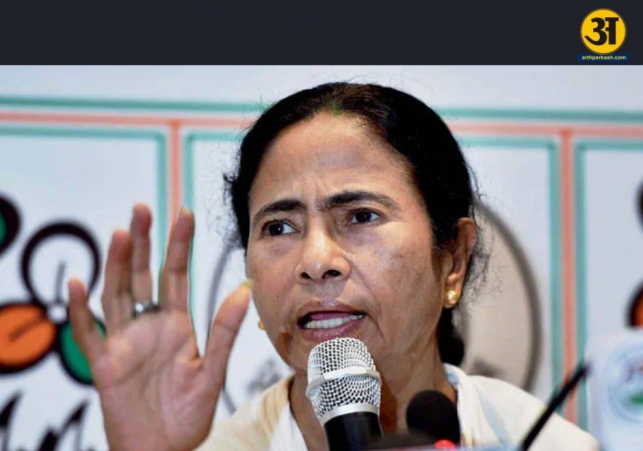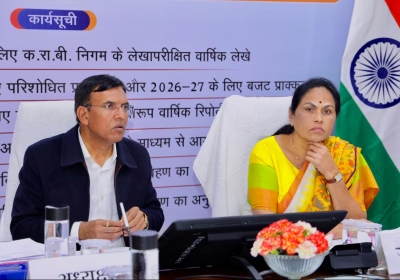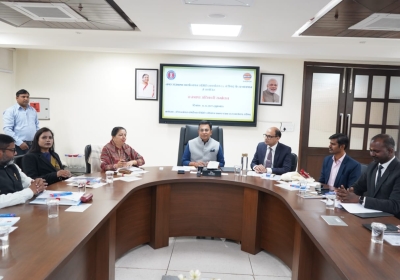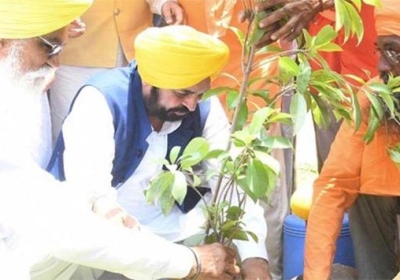
BJP hits back at Mamata Banerjee for ‘Mrityu Kumbh’ comment
BJP slams CM Mamata Banerjee over ‘Mrityu Kumbh’ remark, calls her ‘Anti-Hindu’
The ongoing Maha Kumbh Mela has once again become the focal point of political discourse, with West Bengal Chief Minister Mamata Banerjee’s controversial remarks igniting a fierce response from the Bharatiya Janata Party (BJP). During a speech in the West Bengal Legislative Assembly, Banerjee accused the Uttar Pradesh government of gross mismanagement at the event in Prayagraj, calling it a “Mrityu Kumbh” (Death Kumbh). This comment quickly drew widespread criticism, particularly from BJP leaders, who have branded her as “anti-Hindu.”
Mamata Banerjee’s criticism of the Maha Kumbh Mela
Mamata Banerjee, addressing the Legislative Assembly, claimed that the event, which is one of the largest religious congregations in the world, has not been properly managed by the Uttar Pradesh government. She pointed out that while VIPs were provided special treatment and luxury accommodations costing up to ₹1 lakh, the common people had no such arrangements. This, according to Banerjee, led to severe mismanagement, especially concerning the safety and well-being of the pilgrims. She accused the Uttar Pradesh government of neglecting the poor, who were forced to endure substandard facilities.
She also raised concerns about overcrowding, which often results in stampedes at such large gatherings. In her remarks, she emphasized the lack of proper planning to manage the immense crowds that the event attracts. “Maha Kumbh has turned into ‘Mrityu Kumbh,’” Banerjee stated, further criticizing the Uttar Pradesh government’s handling of the event under Chief Minister Yogi Adityanath.
Mamata Banerjee’s reference to the event as a “Death Kumbh” stirred emotions, given the cultural and religious significance of the Maha Kumbh Mela. This annual festival, where millions of Hindus converge at the Triveni Sangam in Prayagraj to take a holy dip in the confluence of the Ganga, Yamuna, and the mythical Saraswati rivers, is considered one of the most sacred and auspicious events in Hinduism. For many Hindus, the Kumbh Mela is not just a religious event but also a cultural celebration of faith and devotion.
The BJP quickly condemned Mamata Banerjee’s remarks, accusing her of insulting a religious event that holds immense significance for millions of Hindus across the country. BJP MLAs in West Bengal protested against Banerjee’s comment, with some even donning saffron turbans, a symbol of Hindu identity. The BJP legislators raised slogans, calling her an “anti-Hindu chief minister” for allegedly belittling the Maha Kumbh.
Suvendu Adhikari, the leader of the opposition in West Bengal, led the charge, asserting that such comments would not be tolerated by the people of India. He accused Banerjee of undermining Hindu traditions and religious sentiments for the sake of political expediency. According to Adhikari, Banerjee’s statement was a deliberate attack on the spiritual significance of the Kumbh Mela, which has been a part of India’s cultural fabric for centuries.
The BJP also pointed out that Banerjee had previously made similar comments about Hindu festivals and traditions, alleging that she has a history of disregarding Hindu sentiments. They accused her of selectively choosing when to show concern for public health and safety, pointing out her apparent indifference when it comes to Muslim religious gatherings or events like Eid.
ALSO READ: U.P. Government extends deadline for employees to submit asset details: report
ALSO READ: UP CM Yogi Adityanath encourages women MLAs to build a legacy of action
Mamata Banerjee challenges BJP’s allegations
In response to the BJP’s criticisms, Mamata Banerjee issued a challenge to the party, asking them to prove the allegations linking her to Bangladeshi fundamentalists. She stated that if the BJP could substantiate these claims, she would be willing to resign. Banerjee’s remarks came after the BJP raised questions about her alleged connections with extremists and accused her of pandering to vote banks at the cost of Hindu traditions.
Banerjee reiterated her commitment to supporting all religious communities but insisted that she would not tolerate any attempts to malign her reputation with baseless allegations. She also mentioned that she would raise the issue with Prime Minister Narendra Modi, calling on him to address the BJP’s accusations against her.
Amit Malviya, the chief of the BJP IT cell, also weighed in on the controversy, accusing Mamata Banerjee of showing open disdain for Hinduism by labeling the Maha Kumbh Mela as “Mrityu Kumbh.” Malviya went further, alleging that Banerjee had been influenced by Firhad Hakim, a known proponent of Dawat-e-Islam, which he claimed was a significant factor in her negative stance toward Hindu religious events.
Malviya argued that Banerjee’s comments were part of a broader pattern of behavior in which she systematically undermines Hindu festivals and traditions, while simultaneously appeasing Muslim voters and extremists. He pointed to her past actions, such as facilitating Eid gatherings, funding madrasas, and allowing unrestricted religious processions, as evidence of her prioritizing the interests of her Muslim constituents over those of Hindus.
According to Malviya, Banerjee’s approach to Hindu festivals and rituals is marked by “disdain and hostility.” He accused her of using Hindu religious events as a political tool to appeal to a specific vote bank while disregarding the concerns and sentiments of the Hindu community. Malviya’s comments were a direct response to Banerjee’s remarks about the Kumbh Mela, which he viewed as a deliberate attempt to tarnish the event’s reputation.
The ongoing clash between the BJP and Mamata Banerjee over the Maha Kumbh Mela is not just a religious debate but also a reflection of the broader political divide between the two parties. The BJP has long accused Banerjee of being soft on Hindu issues, pointing to her perceived lack of support for Hindu festivals and rituals. Meanwhile, Banerjee has repeatedly defended her stance, arguing that her government works to promote equality for all religious communities.
This political confrontation highlights the deepening polarization in India, with religious issues playing a central role in electoral politics. The debate over the Maha Kumbh Mela is only one example of how religious sentiments are being weaponized in political battles, with each side accusing the other of disrespecting Hindu traditions for the sake of political gain.
The controversy surrounding Mamata Banerjee’s “Mrityu Kumbh” remark is a reflection of the growing political and religious tensions in India. What began as a critique of the Uttar Pradesh government’s handling of the Maha Kumbh Mela has now evolved into a full-blown political row, with accusations of religious disrespect and appeasement.
While Mamata Banerjee maintains that her comments were made in the interest of public safety and the welfare of the common people, the BJP sees them as a direct attack on Hinduism and a deliberate attempt to undermine one of India’s most revered religious events. As the dispute rages on, it remains to be seen how it will influence the political landscape in West Bengal and beyond. For now, the controversy serves as a reminder of the deep divisions that continue to shape Indian politics and the complex relationship between religion and governance.





